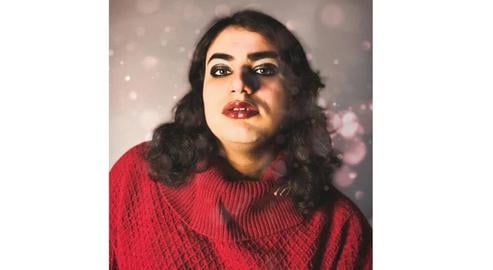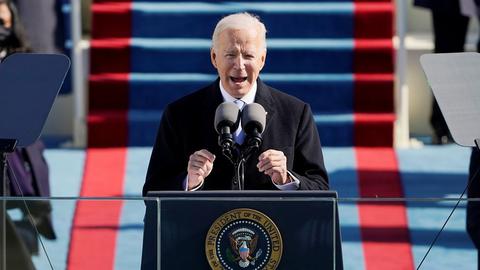Thursday, 21 January, 2021
"I have always loved long hair since I was a child; so much so that when I flirted with my imaginary hair and twisted my neck, everyone said, 'The boy is a lunatic.' I could never keep long hair. The story of my hair is like the story of all those who, at least once in Iran, have experienced the bitter taste of imposition, coercion, and force."
This is an extract from the writings of gender equality activist Amira Zolghadri, who describes her tortuous path of self-realization, sexual orientation and gender identity: a path in pursuit of her true self and discovering what she wanted.
"My mother would not let me grow my hair. Every time I thought I had got away with it and my hair was reaching the front of my forehead, as night fell, all my dreams were dashed. In my sleep she would cut my hair so that I would have to go to the barber shop in the morning. I still remember being angry with her, even though I love her so much. As I grew older I wouldn’t give in to her wishes and let my hair get untidy. But my mother was more stubborn than me and found a new way to suppress me and my desires. She told my teachers not to allow me to take exams until I had cut my hair. I didn’t give up and made excuses every time, but in the end I had to surrender to their demands."
Zero Sum Culture
It was not simply a matter of Zolghadri’s hair being long or short, but of wanting to own her own body. "When I was a child, I used to apply snake oil on my face to get a beard and moustache; a desperate effort that didn’t even cause a single hair to grow on my face. Because I lived in religious communities and among fanatics where being a man was a symbol of power with signs such as a beard and moustache, I didn’t want to lose that power as I got older. This is how I felt at that time. But perhaps this way of thinking distracts people from the experience of being trans, because gender in our culture is zero sum: femininity or masculinity. In reality gender is built by experience and results from the depths of society's view of philosophy, history, and culture, and is influenced by the will and perception of individuals."
In societies with a bipolar view of gender and sexuality, people who do not define themselves in stereotyped categories generally feel confused about their desires, sexual orientation and gender identity. Strict and predetermined frameworks can be found in culture, society and religion as well as the education system, the law and the legislature. The narrower these frameworks and the stricter these stereotypes, the more difficult and sometimes unbearable life becomes for people who define themselves by colors other than black and white.
Rape and Emigration
"When I tried to know myself, social media wasn’t as active as it is today," says Zolghadri. "All I knew was that I had a masculine sexual organ, and I had an emotional and sexual attraction to people who had masculine behavioral and physical characteristics. I didn’t have a proper understanding of gender. I thought that because my ID card says boy, then I should be a boy. I thought that a man could only be in a relationship with a woman, and vice versa, I did not have the space to define myself as a woman. Because of this, I felt suspended between the earth and the sky and was confused. The experience of rape and sexual violence was a severe slap in the face that knocked me to the ground. It was very difficult for me to both understand what had happened to me and to seek to understand my own sexual orientation. But I needed so much to define myself to survive that I finally succeeded."
"The further I went, the more I found a space to express my pain, my feelings and my experiences," Zolghadri explains. "With much effort, I finally identified myself as a homosexual. With this identity, I revolted against myself and whatever took the true me from me. I revolted, and as a result of these wars I was forced to leave Iran and go to Turkey. It was there that I first saw Iranian trans people. Their pain was bigger than mine and we had different experiences. But immigrating to North America I found out about the anti-oppressive identity of trans people I saw here; something different from what I had seen in Iran and Turkey,” she says.
“Ultimately, society's view of me as a woman and the gender expression attributed to my femininity and the experiences I gained on the way to life in a larger world led me to introduce myself as transgender, and I think this is the most appropriate and accurate definition for me,” Zolghadri continues. “When I am asked if I am trans or gay, I always use homosexuality alongside transgender; because this word denotes all oppression, violence, and discrimination. I think if today's Persian-speaking audience is familiar with these definitions and the LGBT community, it is because of the experiences, efforts, writing, and revelations of human beings like us who tried to know ourselves, make our voices heard, and do something to improve the situation for ourselves and others."
Related coverage:
Three Transgender Iranians Arrested Because of Instagram Posts
The Saga of Trans and Gay Students in Iran
visit the accountability section
In this section of Iran Wire, you can contact the officials and launch your campaign for various problems

























comments